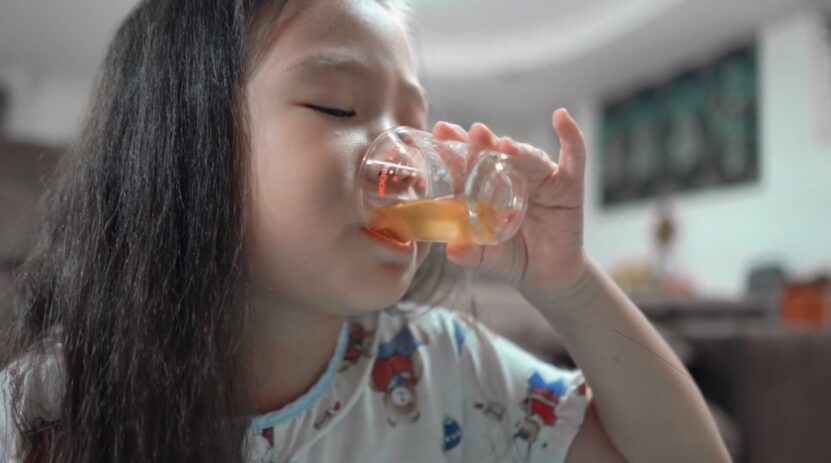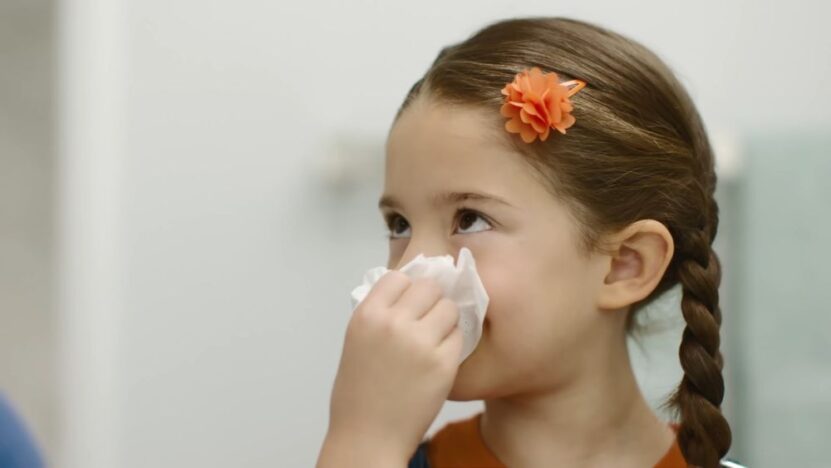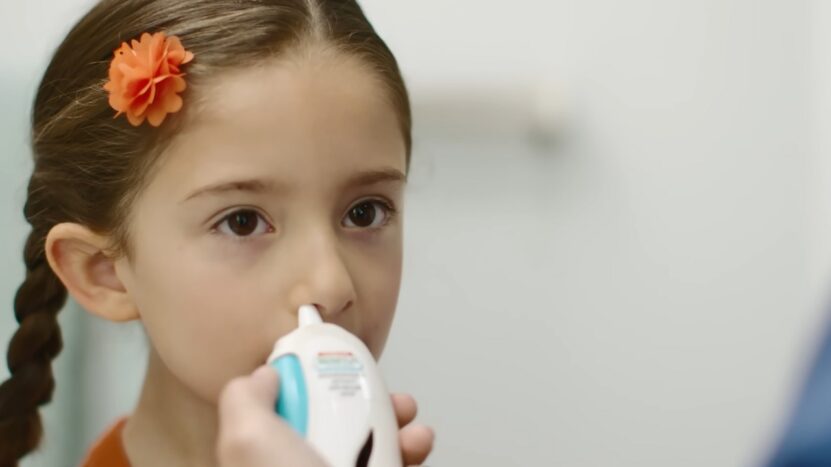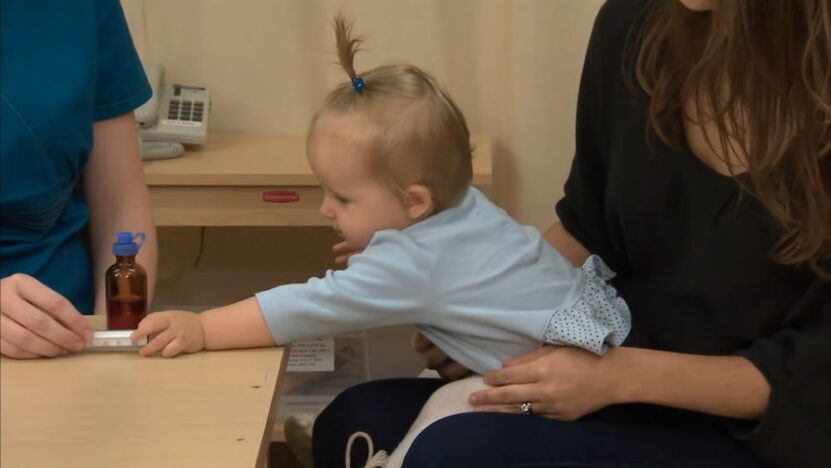Allergies can be a nightmare, not just for adults but especially for little ones. Their immune systems are still developing, making them more susceptible to certain allergens. Whether it’s sneezing, itching, coughing, or wheezing, seeing our kids suffer is the last thing we want.
Fortunately, several medications have been formulated specifically with children in mind. Let’s discuss seven of the best allergy medicines for kids, ensuring their safety and effective symptom relief. Remember: Always consult with a pediatrician before starting any medication, even if it’s available over the counter. Every child’s needs and reactions can be different.
1. Children’s Benadryl (Diphenhydramine)

Benadryl has been a go-to choice for many parents for years. Known as an antihistamine, it’s effective in treating symptoms like sneezing, itching, and runny nose.
But there’s a catch – Diphenhydramine can cause drowsiness. It’s essential to ensure the little ones aren’t engaged in activities where this side effect could be problematic, like swimming or climbing. Also, always adhere to the recommended dosage to prevent any unwanted side effects.
2. Children’s Claritin (Loratadine)
A non-drowsy option, Children’s Claritin is another antihistamine that provides 24-hour relief from allergy symptoms. It’s often favored by parents for school-going kids due to its non-sedative nature. Loratadine works by blocking the action of histamine, a substance in the body that causes allergic symptoms.
It’s available in chewable tablets and syrup, making it convenient for kids who might have trouble with pills.
3. Children’s Zyrtec (Cetirizine)

Zyrtec is yet another antihistamine known for its fast-acting properties. It can begin to relieve symptoms in as little as one hour. While generally non-drowsy, some kids might experience slight sedation.
So, it’s a good idea to monitor how your child reacts the first time they take it. It’s available in both liquid and chewable forms, catering to various age groups.
4. Children’s Allegra (Fexofenadine)
For kids aged two and above, Children’s Allegra offers another non-drowsy solution to combat allergies. Fexofenadine is an effective medicine against symptoms like itchy throat, runny nose, and watery eyes.
One advantage of Allegra is its long-lasting relief, ensuring that children can get through their day without much disruption. It’s also available in various formats, including oral suspension and chewable tablets.
5. Nasacort Allergy (Triamcinolone Acetonide)
Differing from the antihistamines mentioned above, Nasacort is a nasal spray that contains a corticosteroid. It’s designed to reduce inflammation and alleviate nasal allergy symptoms. It’s crucial to follow dosing instructions carefully and ensure the child doesn’t overuse it. Regularly consulting with a pediatrician can help monitor its effectiveness and any potential side effects.
6. Children’s Flonase (Fluticasone Propionate)

Children’s Flonase is another nasal spray option but is recommended for kids aged four and above. Like Nasacort, it also contains a corticosteroid that provides relief from nasal congestion, sneezing, and itchy nose.
Regular cleaning of the spray nozzle and adhering to the dosage instructions is vital. Overusing can lead to side effects, so it’s always a good idea to keep an eye on how often it’s used.
7. Singulair (Montelukast)
Lastly, Singulair stands out as it’s not an antihistamine or a corticosteroid. Instead, it’s a leukotriene receptor antagonist. It works by blocking leukotrienes, chemicals in the body that cause allergic reactions. Singulair can be beneficial for kids who also have asthma, as it can treat both conditions. Asthma is relatively rare in children, with only a small percentage of kids experiencing this chronic respiratory condition.
However, some concerns have been raised about potential side effects related to mood and behavior, so monitoring and regular consultation with a doctor are crucial.
Factors to Consider When Choosing an Allergy Medication for Kids

Every child is unique, which means their reactions to medications might vary too. When choosing an allergy medicine, it’s crucial to consider the following aspects:
Age Restrictions
Always look for age recommendations on the packaging. Some medicines are not formulated for younger children and might have harmful effects if given at a lower age.
Duration of Effect
Depending on your child’s schedule, you might opt for a 24-hour relief medication or one that needs to be administered multiple times a day.
Form of Medication
Whether it’s a chewable tablet, liquid, or nasal spray, ensure your child is comfortable taking the medication in its given form.
Possible Side Effects
Always monitor the first few days after introducing a new medication. Look out for any unusual behavior, excessive drowsiness, or other side effects.
Natural Alternatives and Precautions
While medications are effective, some parents opt for natural alternatives or preventive measures:
Quercetin
This natural antihistamine and anti-inflammatory can be found in many fruits and vegetables. It’s often available as a supplement but consult with a pediatrician before introducing it to your child.
Local Honey

There’s a belief that consuming local honey can help build immunity against local allergens. While there’s limited scientific evidence to back this up, some parents swear by it.
Probiotics
A healthy gut can boost the immune system. Introducing probiotics, whether through natural sources like yogurt or supplements, might help strengthen your child’s immunity.
Air Purifiers
Investing in a good air purifier can reduce airborne allergens like pollen, pet dander, and dust mites in your home.
Regular Cleaning
Regularly cleaning your home, including vacuuming carpets, washing bedding, and cleaning curtains, can reduce the accumulation of allergens.
Diet and Allergies: Making the Connection

Diet plays a pivotal role in our overall well-being, and this holds true for children as well. Some foods can help mitigate allergy symptoms, while others might exacerbate them.
- Omega-3 Fatty Acids: Found in foods like salmon, flaxseeds, and walnuts, Omega-3s can reduce the production of inflammatory chemicals in the body, potentially easing allergy symptoms.
- Vitamin C: Not only is it an antioxidant, but Vitamin C also acts as a natural antihistamine. Citrus fruits, bell peppers, strawberries, and broccoli are all rich in Vitamin C.
- Limit Dairy During High Allergy Seasons: Some children find that dairy can thicken mucus, making symptoms like a runny or stuffy nose feel worse.
Creating an Allergy-Free Sanctuary
Making your home a safe haven against allergens can significantly help your child find relief. Here are some more tailored tips to consider:
- Pollen Forecast: Check daily pollen forecasts during high allergy seasons. Keeping windows closed during peak pollen times can be beneficial.
- Pets: If your child is allergic to pet dander, consider hypoallergenic breeds. Regularly bathing and grooming pets can also reduce the spread of dander.
- No-Smoking Zone: Tobacco smoke can exacerbate allergy symptoms. Ensure your home and car are smoke-free zones.
- Choose Hypoallergenic Products: From pillows to toys, many products come in hypoallergenic versions that can reduce the potential for allergic reactions.
Seeking Expert Advice

All the information provided, while thorough, doesn’t replace the expertise of medical professionals. Regular check-ups with a pediatric allergist can provide a clearer understanding of your child’s allergies. They can also introduce newer treatments or modifications tailored specifically to your child’s needs.
FAQs
Can children develop allergies even if neither parent has them?
Yes, children can develop allergies even if neither parent has a history of allergies. While there’s a genetic component to allergies, meaning a child is more likely to have them if one or both parents also do, it’s not a guarantee.
Environmental factors, early exposure to certain allergens, and other unknown reasons can also play a role in a child developing allergies.
How do I know if my child’s symptoms are due to allergies or a common cold?
Distinguishing between allergies and a cold can be challenging as they share many symptoms. However, allergies often come with itchy or watery eyes, which is less common with colds.
Additionally, allergy symptoms can last as long as the child is exposed to the allergen, which could be weeks or months, whereas colds usually resolve within 7-10 days.
Can my child outgrow allergies?
It’s possible for children to outgrow certain allergies, especially food allergies. For instance, many children outgrow allergies to milk, eggs, or soy.
However, allergies to nuts, fish, or shellfish are less commonly outgrown. Environmental allergies, such as those to pollen or dust mites, might change over time but are less likely to be completely outgrown.
Are there any non-medical interventions I can try for my child’s allergies?
Yes, several non-medical interventions can help manage allergy symptoms. These include using allergen-proof bed covers, keeping windows closed during high pollen times, using high-efficiency particulate air (HEPA) filters, and bathing pets regularly. Additionally, saline nasal rinses can help clear out allergens from the nostrils.
Should my child get an allergy test?
If your child has persistent symptoms that you suspect are allergy-related and haven’t found relief with over-the-counter medications, it might be time to consider allergy testing.
An allergist can perform tests to pinpoint specific allergens, helping you better manage and treat your child’s symptoms.
Can children take allergy medicines year-round?
Some children with perennial (year-round) allergies might need to take medication regularly. However, it’s crucial to consult with a pediatrician or allergist about the long-term use of allergy medications to ensure it’s safe and appropriate for your child’s specific needs.
Final Words
Allergies can be a real challenge, especially when they affect our children. Thankfully, there are numerous medications available tailored to their needs. Always prioritize safety by discussing any treatment options with a pediatrician and closely monitoring any new medication’s effects.
From antihistamines to corticosteroids and even leukotriene blockers, parents have a wide range of options to ensure their kids are relieved from those pesky allergy symptoms. Here’s to happier, sniffle-free days ahead!
